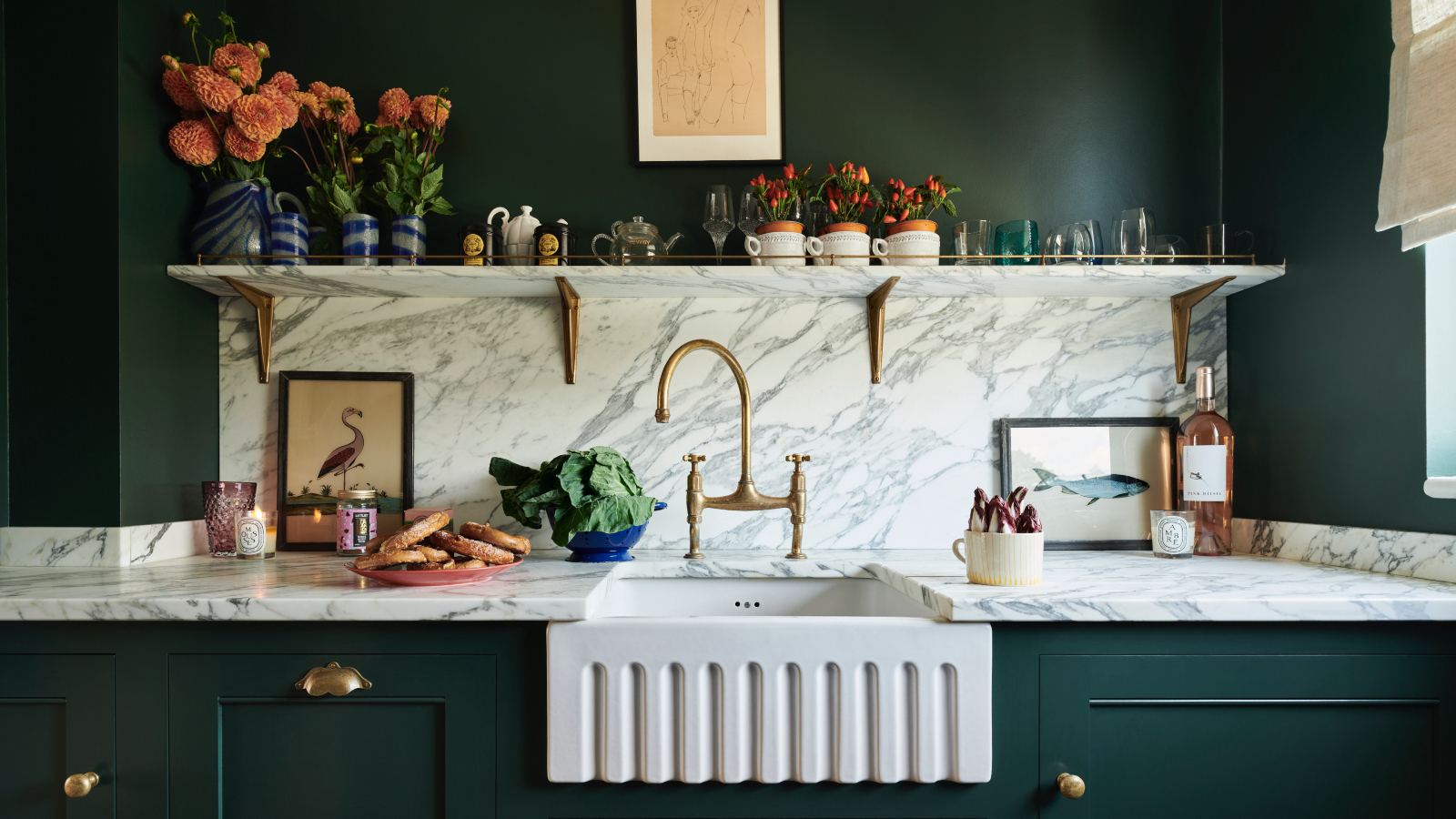
I live in a hard-water area meaning limescale stains and build up is a never-ending battle. The mineral deposits left residue around our faucets, especially in the kitchen, and I struggled to get the tougher ones off – until I called on Mother Nature.
Using lemon juice and water to make a 1:1 cleaning spray, I tested this cheap and natural cleaning solution on the most stubborn limescale marks in my home: the kitchen faucet and base.
This natural way to clean a kitchen worked a charm, beating the effectiveness of much harsher and pungent chemical cleaners I've tried. I'll never use anything but lemon again! Here's how it went, and how long I had to leave it on to work its magic.
What you'll need to remove limescale from faucets
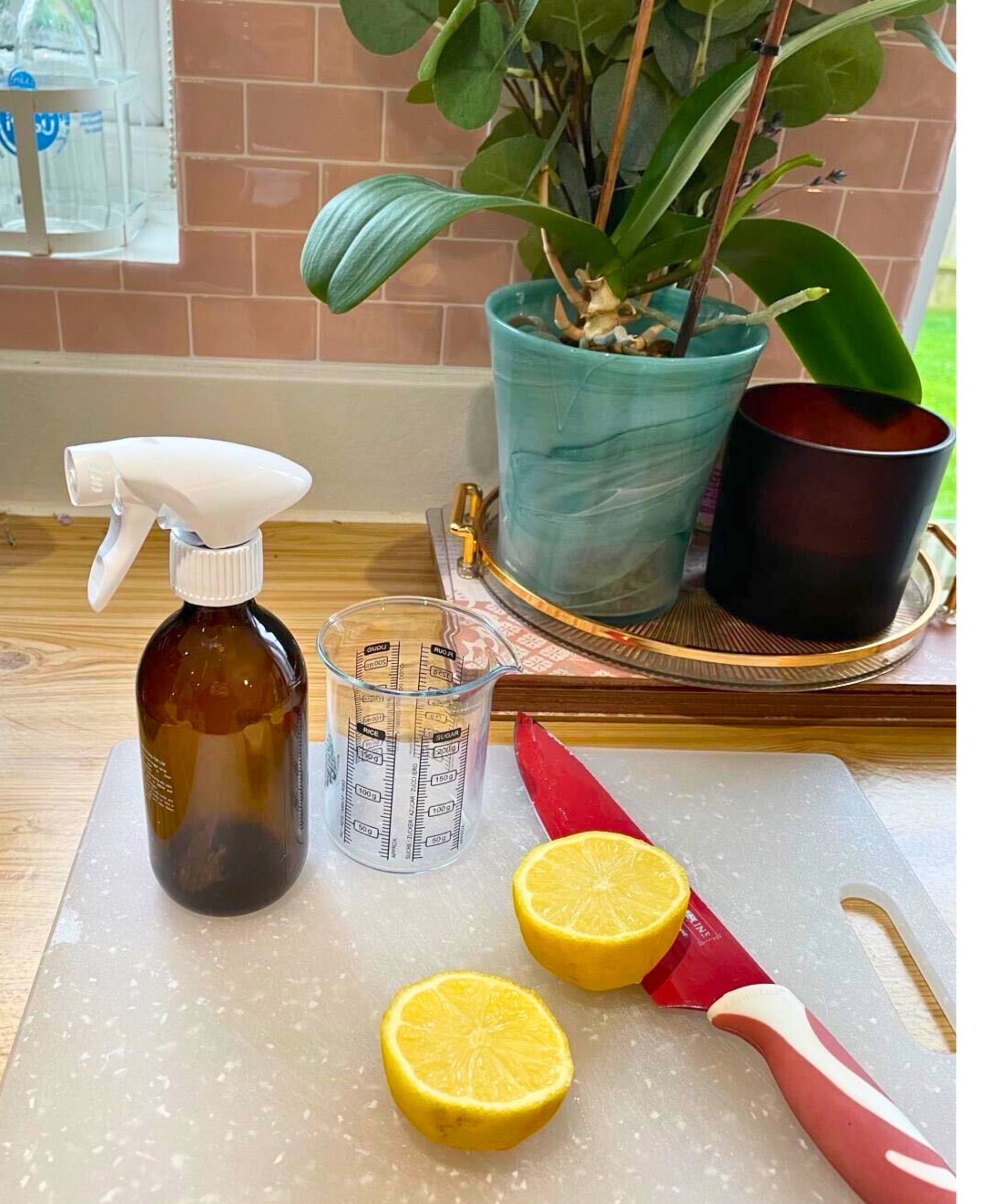
First, here's what you need when using lemon to remove limescale from your faucet at home:
- One lemon. I used half a large lemon's juice, which came out to 0.8 fluid oz (25ml), though I didn't squeeze it all out. You'll find lemons in your usual grocery store.
- Knife. Using a sharp paring knife. This stainless steel set of four paring knives from QVC will last well and can be easily sharpened.
- Sponge. Do not use steel sponges on stainless steel. I used my heavy-duty Scotch Brite sponge, available on Amazon.
- Tap water. I matched my lemon juice volume to make a 1:1 ratio spray, so I used 0.8 fluid oz (25ml). You might find a small measuring cup handy, though you will be able to eyeball it too if you don't have one.
- Spray bottle. I keep a set of amber spray bottles from Amazon at home to make my own cleaning solutions regularly.
- Optional. Lemon squeezers are available at Amazon. These come in handy all-year round for cleaning and making fresh juice drinks.
How to remove stubborn limescale from faucets with lemon
Once you've gathered the things you need, make your faucet lime-scale busting lemon mixture. Here's what to do:
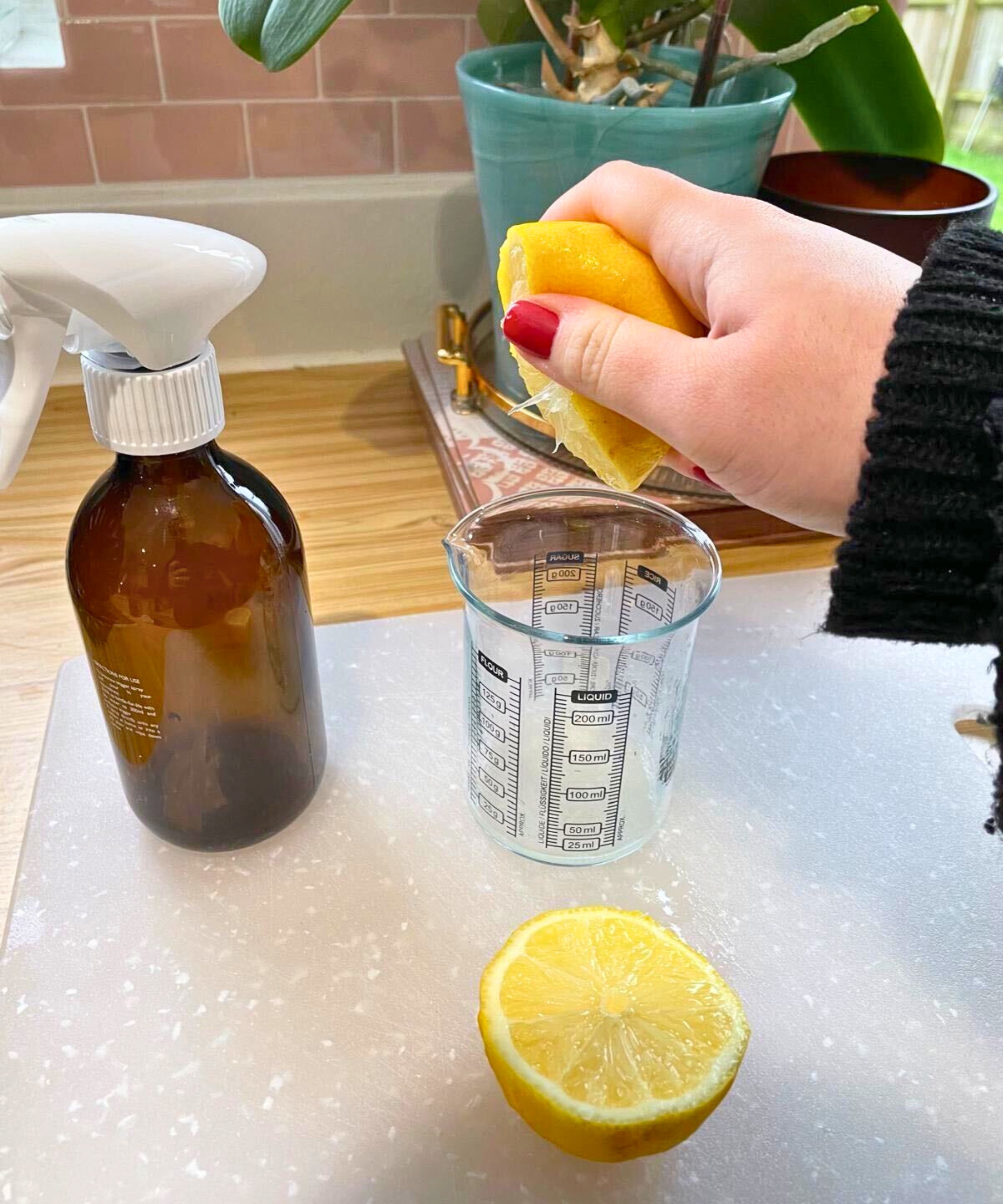
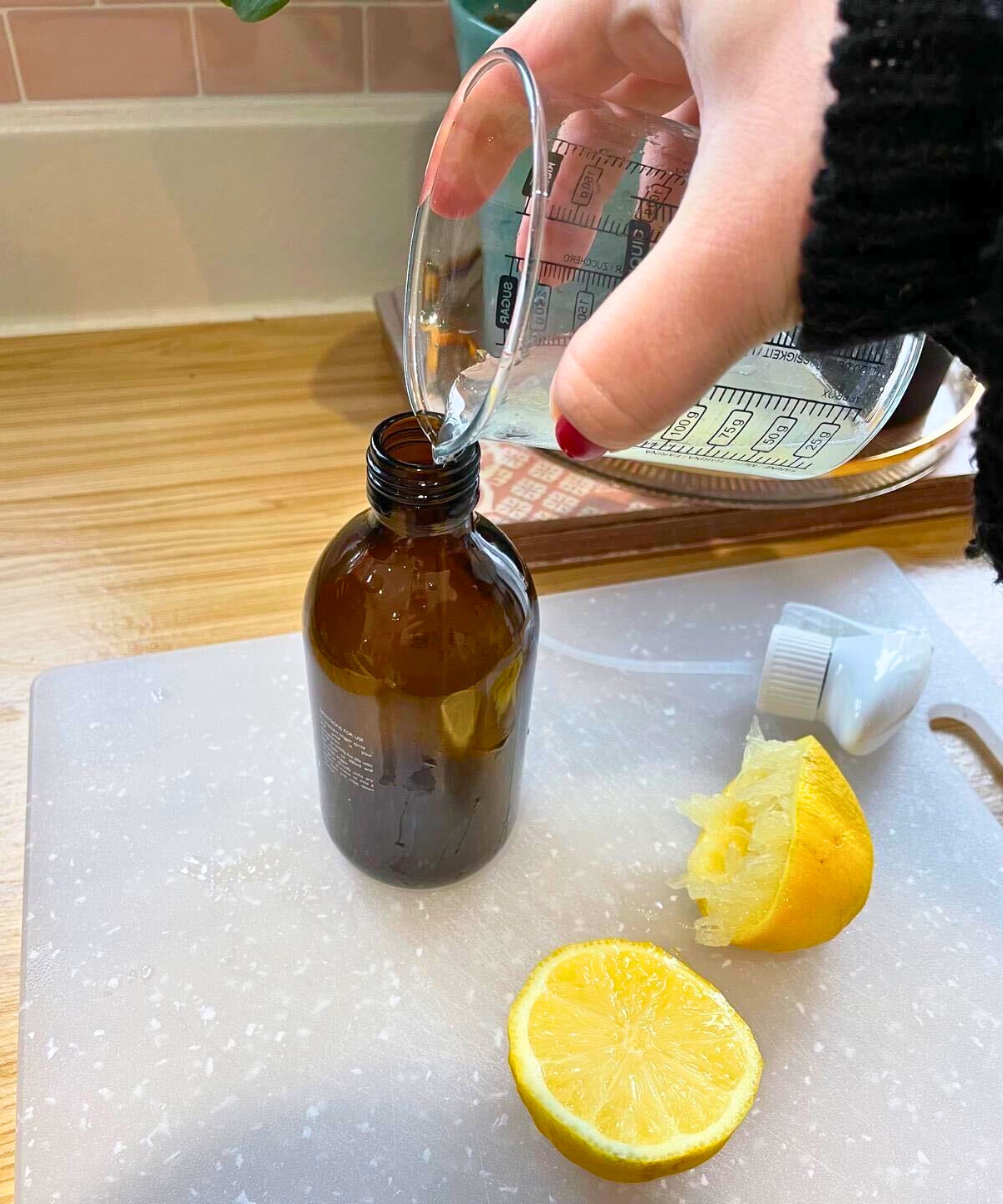
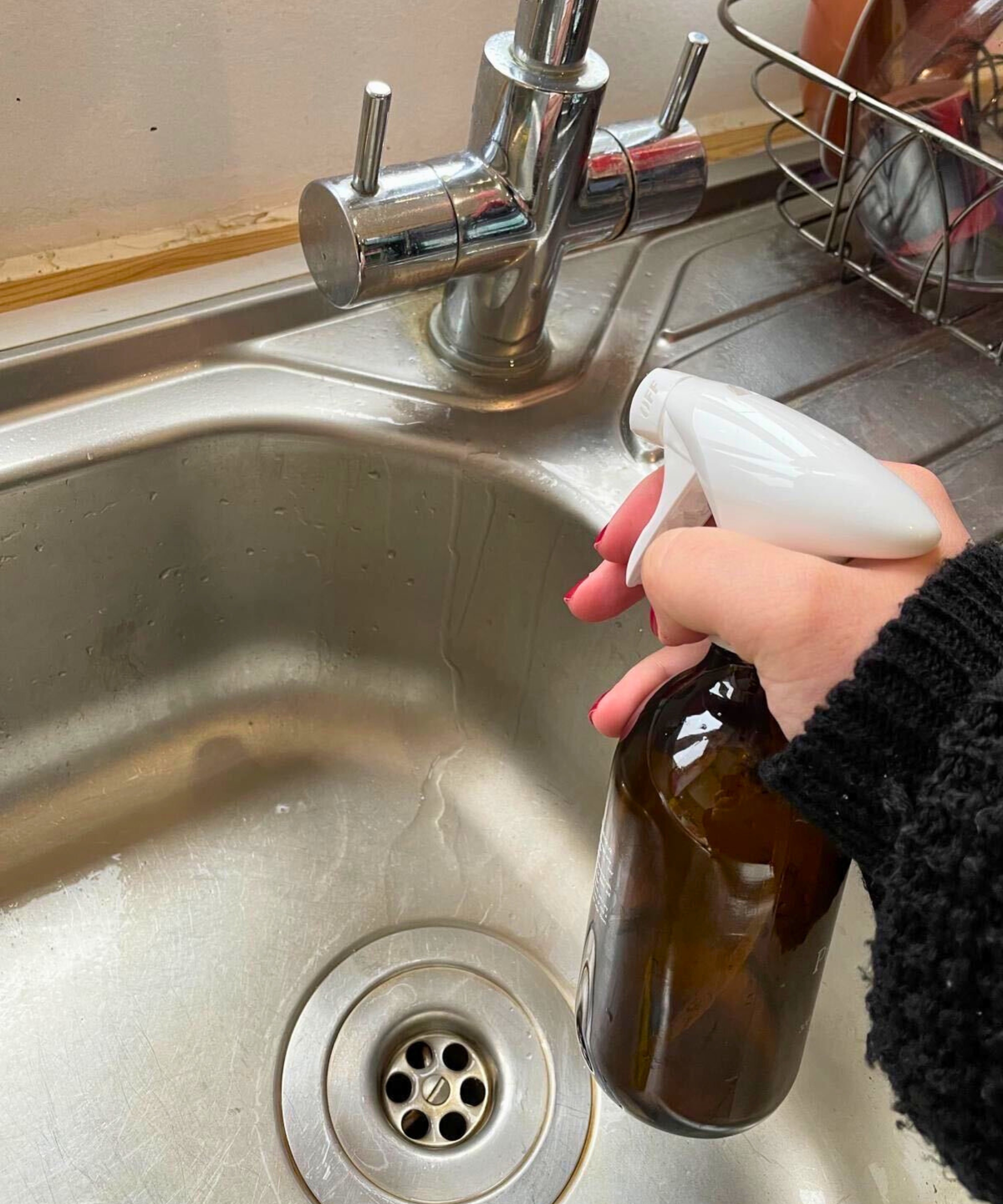
- Cut your lemon in half and squeeze the juice into your amber glass bottle or your measuring cup.
- Match the volume with the same amount of tap water.
- Spray it on the limescale on your faucet.
- If it's a superficial amount of limescale, wipe after two minutes. If it's flaky, wipe after 10. If deeper or stubborn leave for 30 minutes. If your faucet or sink area is stainless steel or chrome, do not leave it longer than 30 minutes as the citric acid can strip the shine.
- Scrub with your sponge.
- Rinse thoroughly.
How it went when I tested this in my home
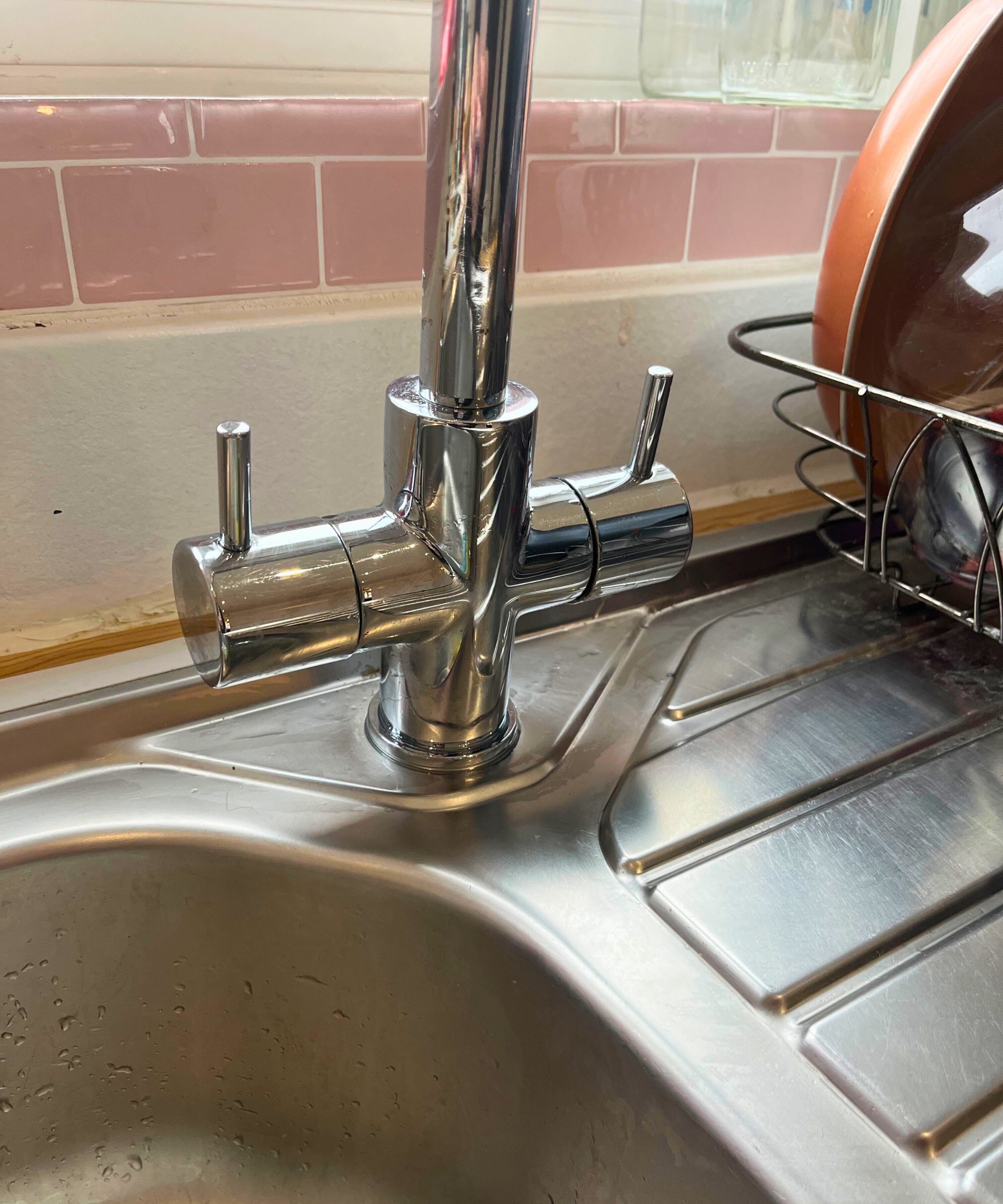
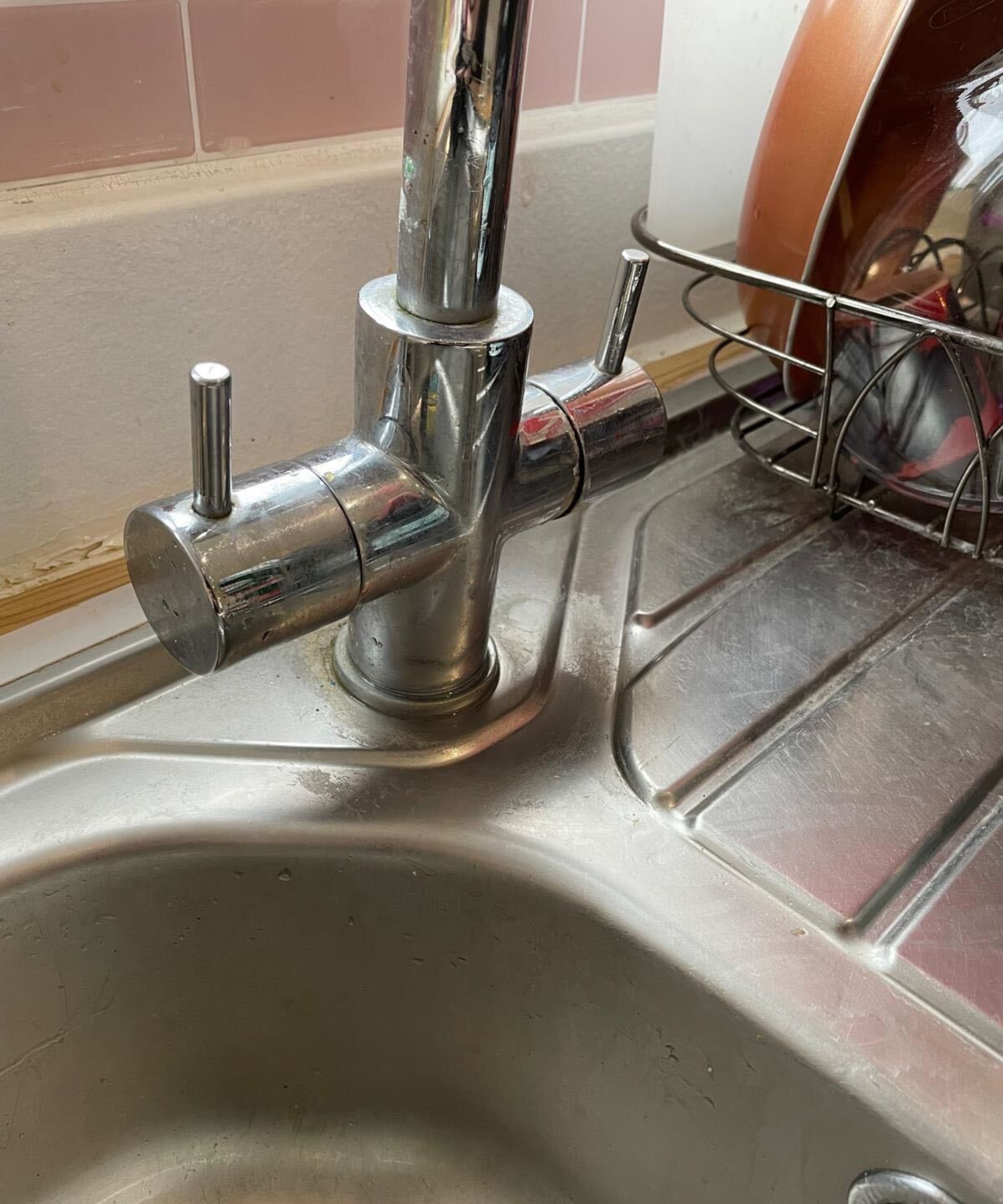
Karina Toner, operations manager and professions cleaner with Spekless, explains, 'Using a 1:1 lemon and water mixture is perfect for cleaning chrome fixtures. The citric acid in lemons breaks down the calcium and magnesium found in hard water stains, making it really effective in removing limescale and mineral deposits.
'When diluted with water, the solution becomes less abrasive, so it’s safer for chrome while still being tough on grime. Chrome itself is a relatively soft metal, you’ll want to avoid anything too harsh so it doesn't become damaged or pitted over time.'
I tested the effectiveness of my lemon homemade cleaning spray at intervals of 2, 10 and 30 minutes as I wanted to see how long I had to leave it on for it to work. Each time, I tested by scrubbing the area with a sponge, then rinsed away the loose limescale and re-sprayed the area.
- At 2 minutes: There was an immediate lift of all superficial limescale.
- At 10 mins: Chunks of limescale wedged between the faucet and cold tap flaked off.
- At 30 mins: With some muscle power from my husband, the stubborn ring around the base of the faucet came off. Karina recommends the Rubber Maid Power Scrubber if you lack hand grip strength like me.
My verdict
Next time, I'll happily and confidently leave the mixture on for 30 minutes. This time, I give this method an 8/10 for effectiveness. I can see how, if used in my daily cleaning habits, this faucet limescale removal hack with lemon would easily tackle that build up.
Karina Toner, operations manager and professional cleaner with Spekless, says, 'I love that you went the DIY route here! You’d be surprised how many kitchen staples can turn into effective cleaners, and you’ve absolutely nailed it with this one.'
On tougher built-up limescale like mine, it took some muscle power and hand strength to shift: enter my husband, as I have chronic pain and my hands lack the strength needed for this sort of grip and scrubbing.
Karina recommends the OXO Grips Clean Brush from Amazon. She says, 'This set includes two brushes – a large one for broader surfaces and a smaller, more precise brush for detailed areas.'
I could certainly have done with a smaller brush for the tighter area at the back of my faucet today!
Karina adds, 'The lemon and water mixture is effective enough in breaking down limescale and grime, but using a brush allows you to scrub the solution into tiny grooves or around the base of faucets where buildup tends to accumulate. The brushes are firm enough to dislodge tough deposits without scratching the surface of chrome fixtures.
However, I will add that the level of scrubbing needed during my testing is more a reflection of my neglect in this area of my kitchen, and in my view, not a reflection of how effective the naturally-occurring citric acid in lemon is for limescale removal.
Karina adds, 'Leaving it on for 30 minutes is just perfect because this allows the citric acid enough time to fully penetrate and dissolve the limescale. For tougher buildups, the acid needs to "soften" the grime so that when you scrub, you're not risking scratches on the surface. If you try scrubbing too early, you might end up putting in more effort than needed as well. Overall, it looks like you’ve got the process down perfectly.'
It's worth noting, whilst I was waiting for the lemon to do its magic, I sprayed my mixture around my stainless steel sink and the outside of my sage green kettle and it banished the limescale and shined them up brilliantly without any scrubbing.
I always heard that cleaning with lemon brings great results and now I really can see why. It’s cheap, effective and I will definitely use it more in my household cleaning.
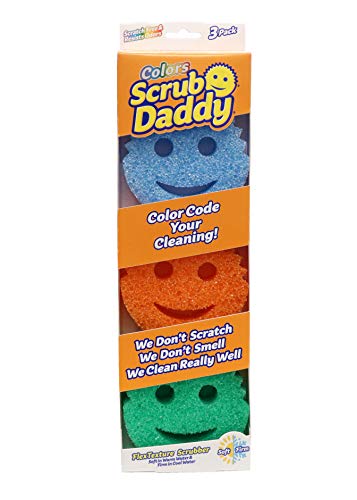
If you're looking for a great sponge, this is Karina's number one pick. She says, 'Scrub Daddy is made from a unique FlexTexture material that becomes firm in cold water and soft in warm water, making it versatile for various cleaning requirements. Because chrome is prone to scratching if abrasive materials are used, the Scrub Daddy is gentle but effective, offering a safe way to scrub the surface. The sponge's smiley face design also makes it easier to grip and maneuver around faucets and handles.'
Next, learn what happens when you add lemons to your dishwasher, and the many things you can clean with baking soda around the home.







